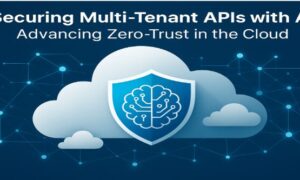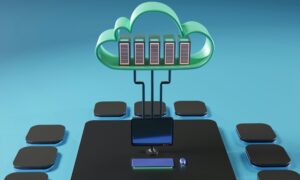Companies used to develop an in-house architecture for various needs such as storage, computation, analytics, and applications. This approach was very costly and possessed many challenges. Some of the key challenges were the cost of setting up the infrastructure and data centers—arrangement of 24×7 power source and massive space for racks of servers, sound cooling systems, etc. Maintenance was a painful activity that consumed most resources on supporting activities rather than on essential deliverables. Besides, change in requirements was difficult to manage due to immense cost, effort, and time.
All the above challenges cause considerable losses to companies across industries. On top of it, the pandemic has aggravated the challenges to multifold, leading to further losses. Cloud computing services come as a boon in such hard times, eliminating most of the issues. Now companies need not develop and maintain in-house architecture. Companies can stop worrying about the pain caused by changes in requirements and focus on delivering quality products.
With plenty of benefits and comfort offered by cloud computing, scores of companies are opting for cloud services and moving away from traditional in-house architecture approaches. As a result, a substantial increase in investment is seen in this space. This has created better scope for skilled individuals in the cloud computing domain. Individuals seeking a career in the cloud computing domain should get hold of the opportunities and start their journey.
Sometimes, individuals want to dive into the field of interest, however unable to think where to start without a definite direction. If you are in a dilemma, the current article deals with cloud computing, its benefits, certifications, cloud computing courses, and career prospectus.
What is Cloud Computing?
Cloud computing can be defined as services provided over the internet. Services may include servers, databases, storage, application, computation power, and analytics. Services are provided on request based on demand fluctuations and can be scaled with ease at a minimal cost. Services are located on the cloud and accessed over the internet from anywhere, anytime. Since companies pay based on use and do not require in-house development, significant cost savings and high performance are achieved.
Services over the cloud are mainly offered in three modes: public, private, and hybrid, depending on the company’s needs and various constraints. Each way has its pros/cons that need to be discussed with the vendor before opting for services. Further, one can opt for assistance over the cloud in different models such as Iaas – Infrastructure as service, Paas – Platform as a service. Saas – Software as a service. Companies usually look for various parameters before opting for service models, such as requirements and cost involved.
Benefits of Cloud Computing
Cloud computing provides tremendous benefits to organizations. Some of the key benefits to organizations are listed as follows.
- It provides the ability to access applications from any location, any time, and from any device.
- It works as service on-demand models. It reduces cost significantly as organizations need to pay for what they use.
- Cloud service providers ensure the highest level of security for their clients, specifically private clouds. It is improbable to lose any cloud services data as vendors provide backup and restore the data lost immediately.
- Cloud computing provides scalability to organizations that can scale up or down the services depending on their need.
- It provides different service modes to organizations, which ensure greater flexibility.
- It avoids the need for regular maintenance and updating of the software. Vendors usually conduct all the maintenance activities.
- It improves productivity as organizations focus on the development of products rather than infrastructure and maintenance activities.
- Cloud computing enhances collaboration.
Step to start Cloud Computing.
- Prepare a Mindset: First of all, before starting any new thing, one needs to develop a healthy mindset and focus on learning. Secondly, one should avoid any presumptions such as a computer science or engineering degree is necessary to start learning cloud computing. Few basic IT skills are required to learn cloud computing from scratch. Make sure to know some of the primary concepts and their interdependence.
- Learning Prerequisites and Fundamentals: Some prerequisites are required to start with cloud computing as below
- Operating Systems Fundamentals: Since cloud computing is a broad space and requires good operating system knowledge, one should learn about how operating systems such as Windows, Linux work at a higher level.
- Virtualizations Concepts: It is a critical concept to learn for the cloud computing domain. You may have to create a virtual machine to work on the cloud. A virtual machine has its own set of operating systems, RAM, disk space, and configuration defined by the user. Many virtual machines can exist on the same physical hardware. It is easy to create virtual machines using commercially available software such as VMware, Parallel, Hyper-V, VirtualBox, etc.
- Networking Basics: Introduction to networking is required since the cloud works over the internet. Frankly speaking, it is quite challenging to get a hold of networking even for skilled IT professionals, requiring patients.
- Scripting – Basic scripting knowledge will help in some instances, such as Python, R, Scala, or Java. Along with the SQL to interact with databases.
- Starting with cloud technology: Cloud computing services primarily depend on the type of vendors. With strong predicted demand in the space, scores of cloud computing vendors are offering their services. Some of the big and large players in the field are Microsoft, Google, Amazon, IBM, Rackspace. Once you have a stronghold on basics, get into details for the particular vendors’ services and offerings.
- Expertise and Automation Skills: Once you are comfortable with the cloud and have an overall picture, You can start creating personal labs for various projects, learn containerization tools such as Docker, LXC/LXD, rkt, Kubernetes. Gain automation skills and knowledge on tools such as Ansible, Chef, Puppet, and SaltStack.
- Enroll in courses: If you are overwhelmed with all the things to learn, it is advisable to join an online course. Online courses are designed with the best content to gain all essential skills in minimal time and effort.
- Achieve certifications: Once you gain all skills and knowledge, it is wise to achieve accreditation as it provides you a competitive edge and helps you showcase your expertise. Popular certifications in the cloud computing space are AWS certification, Azure certification, Google cloud certification.
Final Words
Cloud computing is future technology with immense benefits to companies. Most companies are trying to move or already moved to the cloud that has created good demand for cloud experts. As per Gertner’s report, expenditure on public cloud services is estimated to reach $304.9 billion by the end of 2021 from $257.5 billion in 2020 world-wide (an increase of over 18.0%). Moreover, one can earn better due to a shortage of skilled professionals in the field. According to Forbes, an AWS certified solutions architect may make an annual salary of $125,971. Plenty of vendors offering cloud services along with training and certifications. Selecting a cloud vendor aligned to your career goal and achieving the accreditation may further improve your pay scale.



































